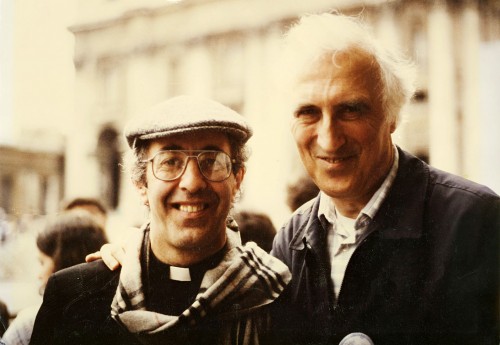Love, Henri: Letters on the Spiritual Life
by Henri J. M. Nouwen, edited by Gabrielle Earnshaw, foreword by Brené Browne (Hodder & Stoughton, £10.99)
Anthony Redmond
Fr Henri Nouwen was one of the most prolific and important spiritual writers of the 20th Century. Since his unexpected death in 1996 his fame and influence as a spiritual writer and guide seem to have grown.
This superb collection of previously unpublished letters stretches from the earliest years of Henri’s career through to his last ten years at L’Arche Daybreak.
He writes letters replying to people who wrote to him about loneliness, grief, the breakup of a relationship, the loss of a child, ageing and numerous other subjects.
He writes with deep compassion and empathy. It is clear from his letters and, indeed, from his life that he was a man who really craved affection and genuine friendship.
He comes across as a vulnerable, sensitive, insecure person in many ways and sincere, loyal friendship meant the world to him. He was always very devoted and loyal to his friends.
Intimate exchange
The preface to the book by Gabrielle Earnshaw tells that: “Although the letters began as an intimate exchange between two people, their power today speaks to Henri’s belief that what is most personal – our brokenness, our insecurities, our jagged edges – is most universal.
For Henri, letter writing was an integral part of friendship. In 1996, just months before his death, he recorded in his journal: “This afternoon I wrote many postcards. While writing I experienced a deep love for all the friends I was writing to. My heart was full of gratitude and affection, and I wish I could embrace each of my friends and let them know how much they mean to me and how much I miss them.”
Authenticity
His close friend, Sue Mosteller CSJ, observed: “He is truly a man whose heart is so open and so vulnerable, so receptive and so giving that our own little hearts feel solidarity and safety when he speaks to us and calls us to grow in like manner. It is the authenticity of his own heart which we recognise, identify with and hope to imitate.”
Again in the preface we learn: “He also struggled with intimacy and conflicting feelings about his sexuality. The vocation of celibate priest exacted a heavy price. His desire for a ‘unique friendship’ conflicted with his vow to give his heart only to Jesus. He never publically acknowledged his homosexuality, deciding that coming out in public would eclipse his larger mission of connecting people with God. Nor did he leave the Church, as many of his generation of Catholic clergy did.”
Towards the end of his life, Nouwen himself wrote: “My sexuality will remain a great source of suffering to me until I die. I don’t think there is any ‘solution’. The pain is truly ‘mine’ and I have to own it. Any ‘relational solution’ will be a disaster. I feel deeply called by God to live my vows well even when it means a lot of pain. But I trust that pain will be fruitful.”
Collection
This wonderful collection of letters tells us so much about Henri Nouwen and his interest in and concern for people.
He had the rare gift of being able to say so much in a few carefully chosen words that came from his heart.
In his eulogy at Henri’s funeral Jean Vanier told the assembly: “Sometimes I sensed in Henri the wounded heart of Christ. For God is not a secure God up there telling everybody what to do, but a God in anguish, yearning for love; a God who is not understood, a God on whom people have put labels. Our God is a lover, a wounded lover, yearning to be loved, yearning to announce love.”


 Henri Nouwen (left) with Jean Vanier in 1987
Henri Nouwen (left) with Jean Vanier in 1987